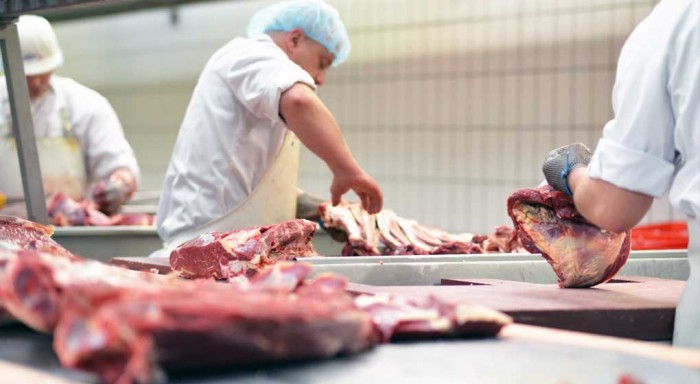Labour shortages are now forcing British meat companies to pay EU processors to do cutting and packing work that should be happening here in the UK, according to the British Meat Processors Association (BMPA).
“That’s valuable productive capacity and tax revenue leaking out of Britain and benefitting the EU,” said BMPA chief executive Nick Allen. “It’s also adding around £1500 per lorry load due to higher post-Brexit freight and customs costs, which will inevitably end up translating into higher food prices for British consumers.”
He said the absurd situation serves to highlight the root cause of the problem. “There are labour shortages throughout Europe. However, while Ireland and the Netherlands, where much of this meat is going, have access to a huge pool of EU labour and the ability to recruit from further afield, UK immigration policy is starving our country of workers,” he added.
Mr Allen was interviewed on the subject on the BBC Radio 4 Farming Today programme today (at 10:19 mins).
 He stressed that, with the industry struggling to cope with a 15,000 worker shortfall, the 800 emergency visas granted for pork butchers won’t solve the problem. But he said BMPA had a solution that it needs the Government to back, referring to a BMPA article in October.
He stressed that, with the industry struggling to cope with a 15,000 worker shortfall, the 800 emergency visas granted for pork butchers won’t solve the problem. But he said BMPA had a solution that it needs the Government to back, referring to a BMPA article in October.
It said: “What we are actually calling for is a short-term pragmatic use of the UK’s new-found immigration controls to plug workforce gaps immediately, while we work on the longer-term solution.
“Industry is already working hard on the longer-term solution with a combination of recruitment and investment in technology. As an example, one company alone has been investing around £100 million per year for the last five years on new technology and equipment, and this is being replicated across the industry.
“Regardless of how high wages rise and how many people join the industry now, a new recruit takes eighteen months to become a fully trained butcher. And we need approximately 12,000 experienced butchers right now in October 2021.
“Government knows that the only practical way to plug the current staffing gap is to bring in experienced migrant workers while UK workers are being recruited and trained-up. This is not free movement. It is an Australia-style controlled immigration policy to fix a short-term labour problem.”




